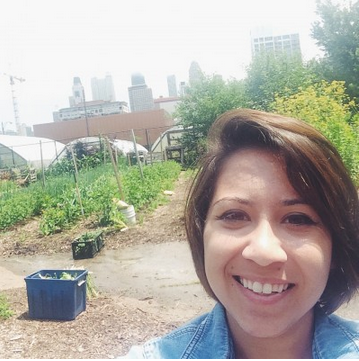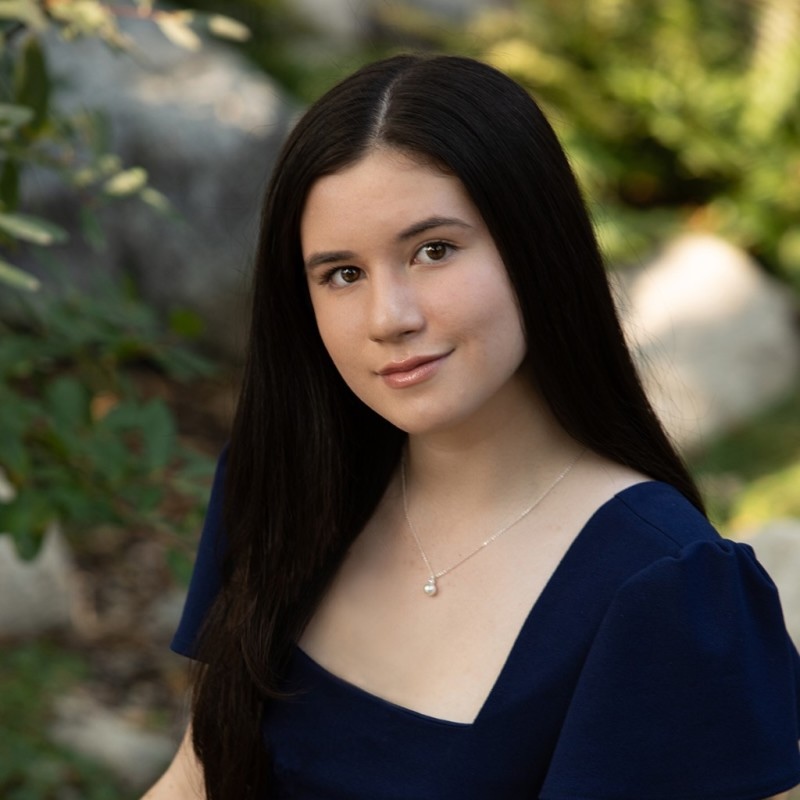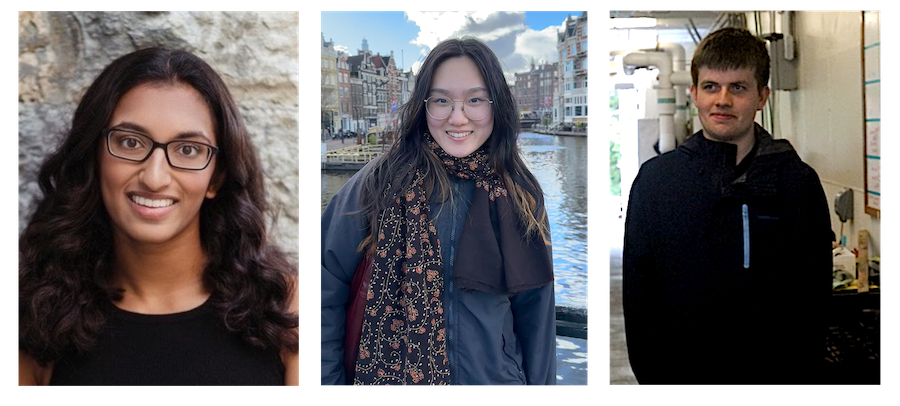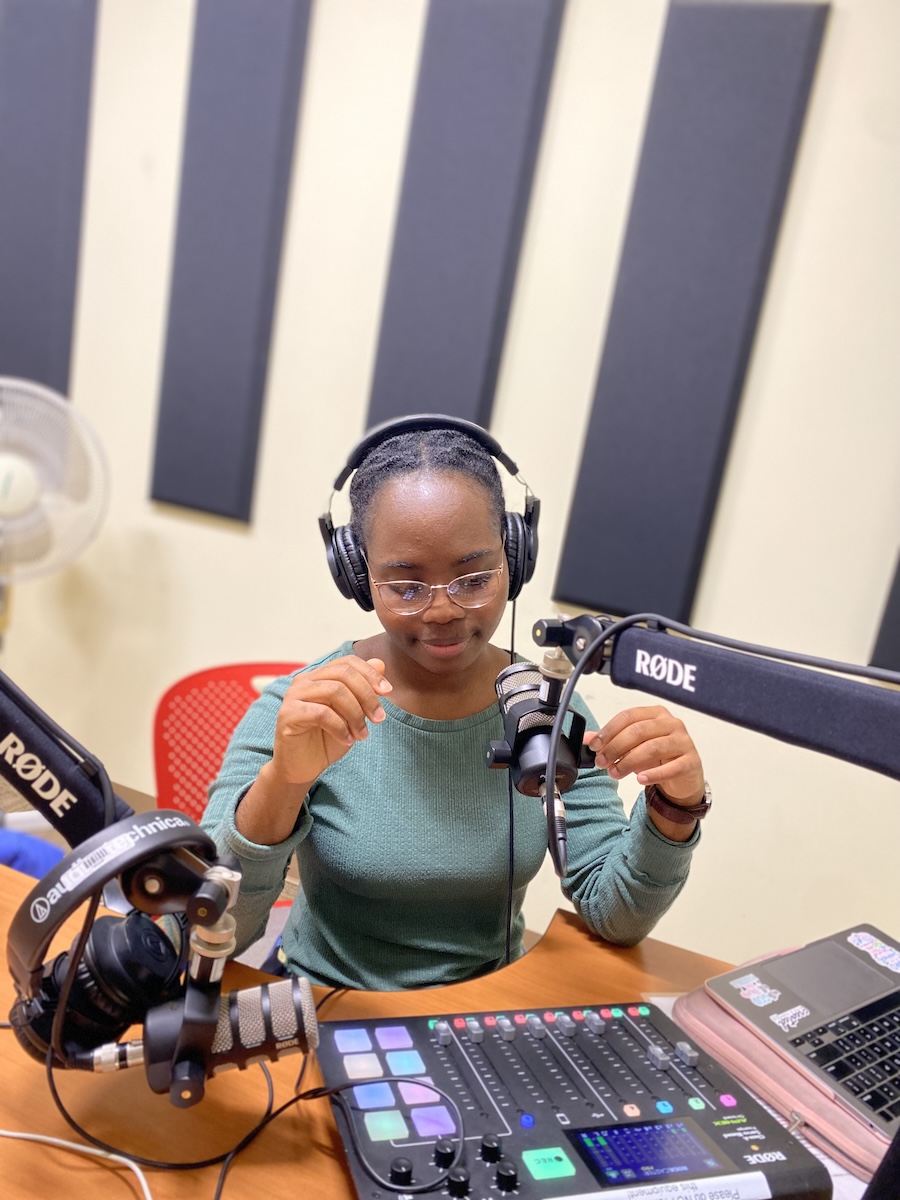In Chicago, Michelle Kruk ’16 Researches Gardening-Gentrification Link
By Talia Cowen '16
Chicago is a city in flux, and the adaptation of the city’s urban gardens have become a lens through which Michelle Kruk ‘16 is exploring the city’s changes.
This summer, Kruk, a Chicago native, is completing research funded by a Riley Research Award from the department of anthropology and sociology, and with support from the Mellon Mays Undergraduate Fellowship Program.
Over the summer, Kruk is volunteering at several urban gardens located in predominantly low-income, African American communities to explore the encroachment and process of gentrification. At the gardens, she is conducting interviews, observing day-to-day activities, and studying their employees, management, and the path the food takes from the garden to the table. She hopes how discover “how urban gardens reflect the race and class politics spatially across neighborhoods in the city of Chicago.”
Kruk’s interest in urban social justice began in high school when, on her way to school every day, she passed Cabrini-Green, “a very, very infamous housing unit that was built decades ago and was meant primarily for African Americans in Chicago.” In the opposite direction, she recalls, “you had Michigan Avenue, State Street, and the Watertower Mall and the lakefront and skyscrapers.” Back then, she “was always sort of confused as to how those two worlds could live so closely together, and yet be so far apart.”
Fast forward a few years, and Kruk, a sociology major and earth and oceanographic studies minor, took a class taught by Assistant Professor of Earth and Oceanographic Science Emily Peterman called Earth, Ocean and Society, which explored natural resources and how humans use them. The class also discussed resource access, an issue that the urban gardens Kruk is working on seek to address. She says that the class was “right up my alley…I realized that I could do something like that as research or as an academic pursuit.”
Kruk, a rising senior, now is pursuing this interest as a summer research project. “I figured what better place to start with than something that is close to home…that I’ve been interested in for some time, and…that would contribute to my community,” she said. As a volunteer, she can help cultivate these gardens as well as the other programs that usually exist alongside them, and in that way that address the systemic problems in Chicago like hunger, crime, and poverty. “A lot of these urban gardens… serve the community either through job placement programs or education programs or even childcare,” Kruk says, and she is planning on teaching a class on environmental racism and Chicago’s food deserts at one of the gardens in the coming weeks.
So far, Kruk has observed that, with the influx of Panera Breads, Starbucks and higher rents into some previously poor neighborhoods, some urban gardens have ceased to serve the community they once did, as these communities have become gentrified and those with low income have been forced to move out, while more white, more wealthy, demographics replace them. Selling the fresh produce to these wealthier communities makes the gardens more money. Meanwhile, other gardens have chosen to move deeper into the projects and into places where it is still hard to find fresh food, areas often referred to as “food deserts.” Kruk is examining the management of these gardens to see how their influence have caused the gardens to transition over time.
Kruk was astonished to find that many individuals that she encountered at the garden who support organic, local food movements were unaware that they were originally created to serve low-income communities, and were now being used by people who could easily shop at Whole Foods or the farmers market every day. “It somewhat shocked me as to how blinded people could be despite being so close to the problem,” she recalls.
Although Kruk admits that volunteering on a garden for several hours day can seem idealistic, her work has been far from easy. While physically taxing (particularly for a person who does not describe herself as “outdoorsy”), the divisions that still exist in Chicago add difficulty to her research. “I kind of have to prove my worth to people who are already at the gardens. Despite the fact that I am from Chicago there are a lot of divisions among those who are from the North Side versus the West Side versus the South Side,” she said. “It’s not like I could automatically gain trust form those who have been there for years or really get people to open up to me in a meaningful way.”
The violent acts of racial hatred that occurred this summer have made the racial and class inequalities that Kruk is researching particularly salient. However, she says that her research has made her better able to cope with them.
She recalls being assigned the task of weeding one of the gardens the day of she got the news about the Charleston shooting. “Having a conversation about that while we were gardening…was very cathartic and a really wonderful way to be talking about national news with people who I didn’t really know that well,” she said. “The only thing we share was that we were both currently in Chicago and both working on this soil.”
When Kruk returns to campus in the fall, she plans to write a thesis on her summer research. But to her, this project is much more than just a paper. It’s about letting people know about all the important work that happens when these gardens are able to serve the communities they were created to assist, whether that be by providing fresh fruits and vegetables, education, job placements, or a place to relax. In her words, “If the one thing that I can contribute is letting people know that this exists and people are doing wonderful work in Chicago, then I have to do it.”



